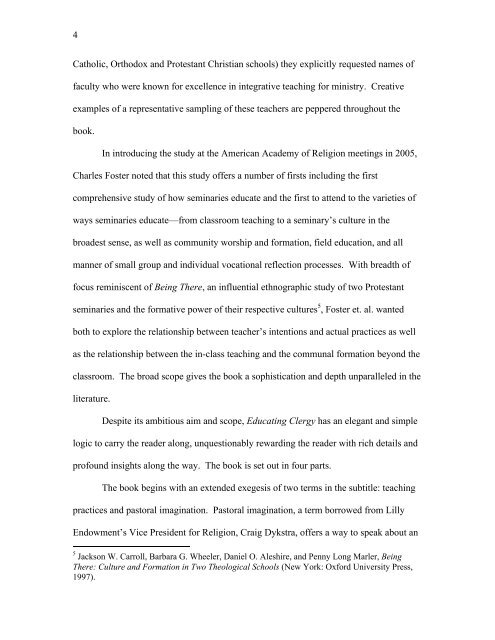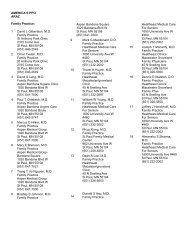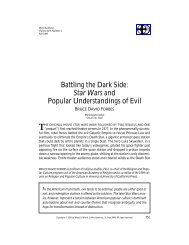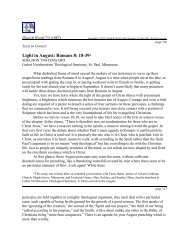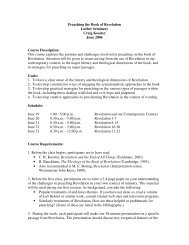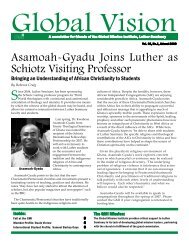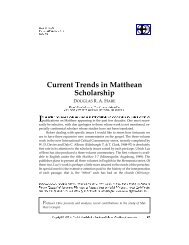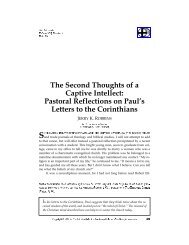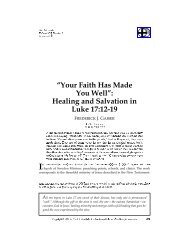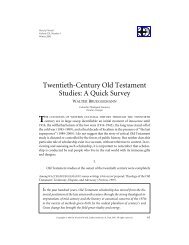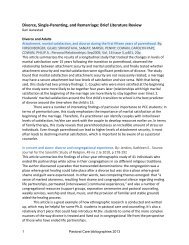Educating Clergy - Luther Seminary
Educating Clergy - Luther Seminary
Educating Clergy - Luther Seminary
- No tags were found...
Create successful ePaper yourself
Turn your PDF publications into a flip-book with our unique Google optimized e-Paper software.
4Catholic, Orthodox and Protestant Christian schools) they explicitly requested names offaculty who were known for excellence in integrative teaching for ministry. Creativeexamples of a representative sampling of these teachers are peppered throughout thebook.In introducing the study at the American Academy of Religion meetings in 2005,Charles Foster noted that this study offers a number of firsts including the firstcomprehensive study of how seminaries educate and the first to attend to the varieties ofways seminaries educate—from classroom teaching to a seminary’s culture in thebroadest sense, as well as community worship and formation, field education, and allmanner of small group and individual vocational reflection processes. With breadth offocus reminiscent of Being There, an influential ethnographic study of two Protestantseminaries and the formative power of their respective cultures 5 , Foster et. al. wantedboth to explore the relationship between teacher’s intentions and actual practices as wellas the relationship between the in-class teaching and the communal formation beyond theclassroom. The broad scope gives the book a sophistication and depth unparalleled in theliterature.Despite its ambitious aim and scope, <strong>Educating</strong> <strong>Clergy</strong> has an elegant and simplelogic to carry the reader along, unquestionably rewarding the reader with rich details andprofound insights along the way. The book is set out in four parts.The book begins with an extended exegesis of two terms in the subtitle: teachingpractices and pastoral imagination. Pastoral imagination, a term borrowed from LillyEndowment’s Vice President for Religion, Craig Dykstra, offers a way to speak about an5 Jackson W. Carroll, Barbara G. Wheeler, Daniel O. Aleshire, and Penny Long Marler, BeingThere: Culture and Formation in Two Theological Schools (New York: Oxford University Press,1997).


